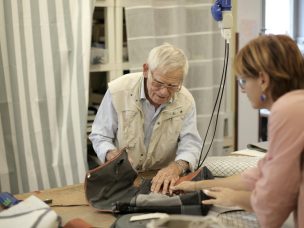Cancer patients did not experience a reduced psychological burden, including depression, fatigue, and anxiety, after being exposed to video sequence-based interventions.
Cancer patients are likely to experience psychological symptoms and require psychological support, particularly during the COVID-19 pandemic. A randomized controlled trial investigating the outcomes of eHealth video sequence-based interventions demonstrated that video interventions were ineffective in alleviating psychological burdens in cancer patients compared to controls. The study findings are published in the journal Integrative Cancer Therapies.
Lack of Improvement Observed in Video Intervention
Cancer patients who received a 4-week video sequence-based intervention showed no improvement in depression, fatigue, and anxiety compared to patients in the control group. There were no significant differences between the intervention and control groups. Despite the lack of improvement in the psychological burden in cancer patients, the intervention group participants had higher recommendation rates for video sequence-based intervention.
The Study Had Higher Heterogeneity Compared to Previous Studies
The current study included a more heterogeneous population compared to previous studies. The study investigators did not pre-select the participants for the initial symptom burden.
Video Interventions Were Administered in a Digital Setting
In this study, participants were provided video sequence-based interventions in digital settings. Unlike other studies, the participants were unable to interact with a group leader or have a possible group effect. Studies suggest that interventions are more effective and yield better outcomes when professional support is also provided.
Shorter Duration Associated With Greater Ineffectiveness of Intervention
Longer-duration interventions tend to be more effective in improving psychological symptoms in cancer patients. The ineffectiveness of video intervention can be attributed to the relatively shorter duration used in this study.
Future studies that evaluate the effectiveness of eHealth videos might choose to focus on one or two of the elements used in this trial in order to improve the generalizability and informative value of the results.
Source
Neubert, S., Schlecht, S., Meng, K., Rabe, A., & Jentschke, E. (2023). Effects of a Video Sequence Based Intervention on Anxiety, Fatigue and Depression in Cancer Patients: Results of a Randomized Controlled Trial. Integr Cancer Ther, 22, 15347354231153172. https://doi.org/10.1177/15347354231153172










